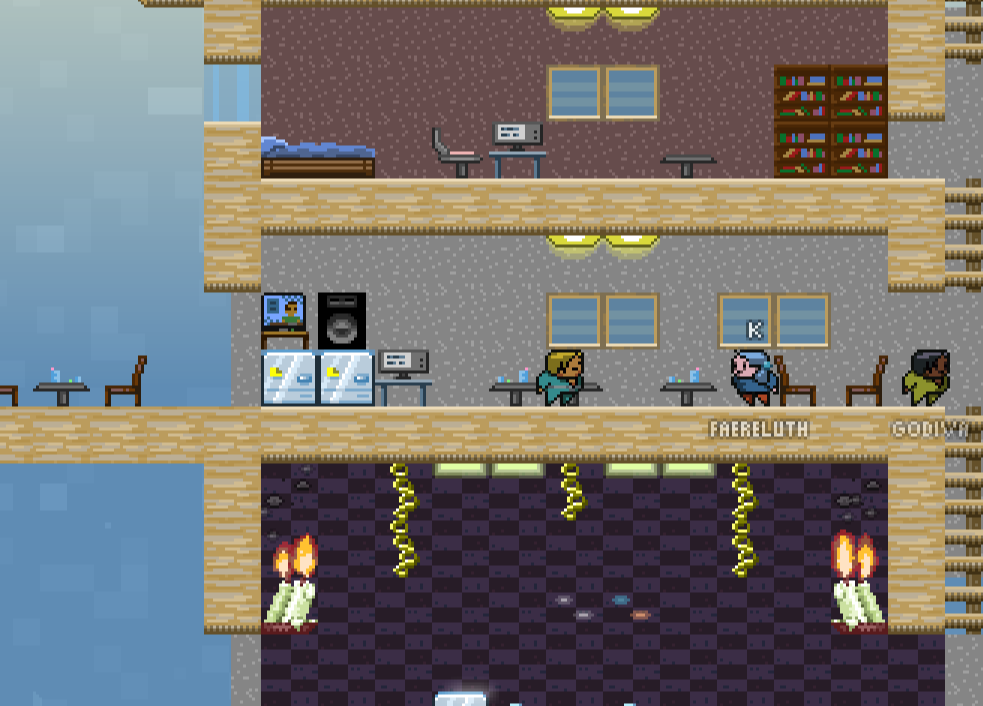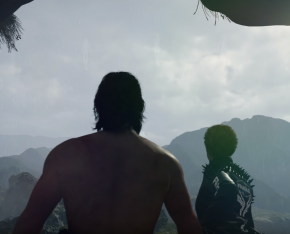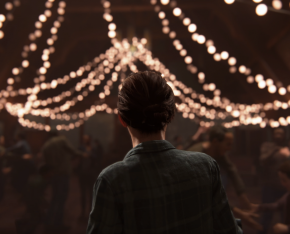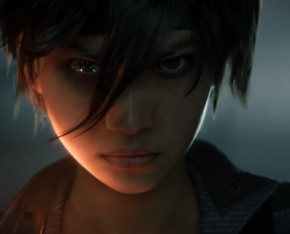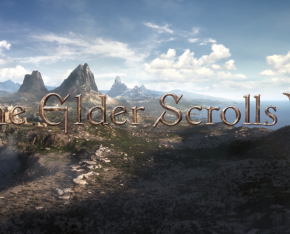By Anni Simpson on September 27, 2013 at 2:00pm
Open-world sandbox games have littered the indie gaming scene, exploding with the popularity of "Minecraft." Being able to explore a world together – sometimes with friends, others with strangers – is fascinating, a feeling that’s multiplied exponentially when you get to build together. Of course, the ability to explore and create with strangers isn’t anywhere near new; it’s one of the most basic features of an MMO. But lately, the desire to work together and create – rather than destroy with a sniper from a hidden spot on the top of a building – has bled into other genres.
"Manyland" is one of these games – as a platformer. In “Manyland,” you meet other players in a shared world where everything you create is done by drawing them! The twist on platformers and “create a world” kind of games is fascinating, and the hope that you can run into other players – “manyzens” – is deeply exciting.
Player Theory snatched up the opportunity to talk to “Manyland” developer Philipp Lenssen about the game and how it came to be!
PT: We love the design of the game. What was your inspiration for it - purpose, graphics, game play?
PL: Glad you love it! It's a mixture of many different things, some of which go back to my teen days playing platformer games on the Amiga, drawing in paint programs, and perhaps even, some more years back, playing Legos.
The first time it shaped into a concrete project was around five years ago when I asked my friends, “What would you think of a world in which everyone jumps around together, like a massive multiplayer platformer... where the fun was the shared experience?” Around the same time, I had a completely separate project idea, which consisted of everyone being able to draw in a small rectangle on one shared page to create a bigger combined, daily drawing, with up and downvotes on any grid cell. A bit later, there was this idea of a multiplayer online creation tool for adventure games, which I always loved to play.
All these three projects never made it beyond idea doodles, but all stuck with me over the years. Last year, I made the first more concrete concept drafts of “Manyland,” and some of these naturally fell together. Sitting in front of the concept images, I knew this project was too big to even consider trying alone. I was in need of a technical architecture mastermind, and by some stroke of random luck (and the help of a little StackOverflow ad), found Scott Lowe, who's both humble and brilliant. It truly melted after that as we started co-conceptualizing, and Scott set up the whole technology stack from A to Z and made things work. Scott went all in and even quit his day job for this.
We have to add, “Manyland” is very open, and as that, also an experiment. We strongly rely on all of us who walk “Manyland” to stick together and evolve into a strong community. The software and the concept need to be filled with life, bonding, creativity, care, and this is where we hope everyone comes in and helps. We had the chance to meet so many great manyzens already, and hope to meet more and set out on this quest together.
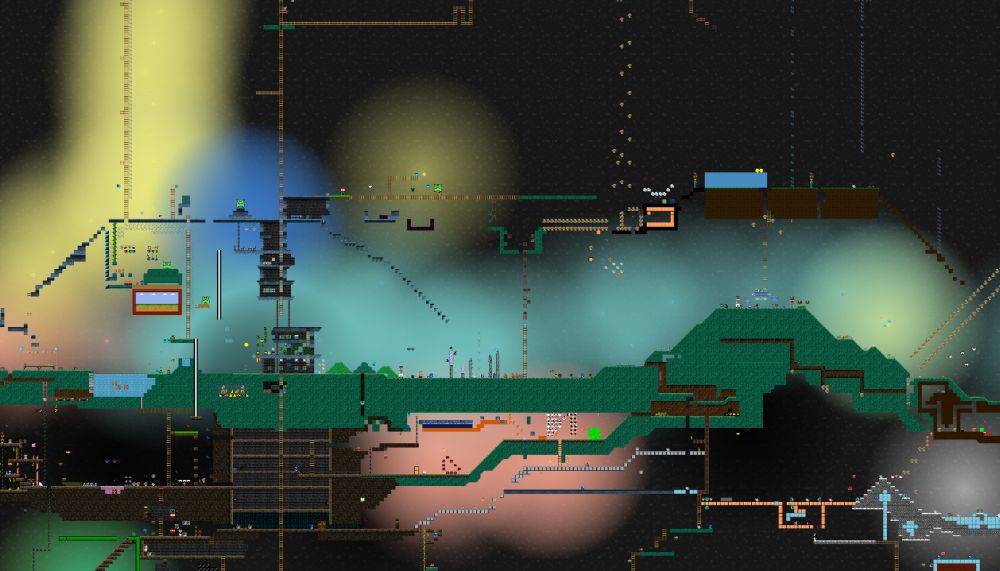
PT: On Sept. 24, your post for “Manyland” frontpaged on /r/indiegaming. How has the indie gaming community on the whole treated “Manyland?”
PL: Very great! A lot of people liked it, and if someone dislikes it, we love honest criticism as it helps us tune the rules and shape the tools we offer.
PT: What are your future plans for the game? I noticed you were very active in your Reddit thread, answering concerns players were having right away and addressing possible problems (e.g., logging into Facebook as opposed to a native login)?
PL: ”Manyland” is a growing world, including the software and the rules behind it. We tune it as we go and dynamically adjust to feedback and issues popping up. On some days, there are multiple updates rolling out (if you ever have a small one-second freeze when jumping... that was an update). Scott is working full time on improving the backend and getting to optimizations we find, and I'm spending a lot of time walking the world and talking to everyone. It's a joy for us!
PT: What was the decision behind having users log in on either Facebook or Google before playing instead of having them create an account through you?
PL: Almost all interface decisions are driven by: how can we make the interface get out of the way? How to have less buttons? How to have less clicks before you do the things you want to do, the fun things? So the main part of these login buttons was to save people from having to fill out yet another registration form. (A benefit technically for us is also that this is one less part to implement, because handling Captchas, password reminders and all these processes can be quite a bit of extra time implementing, time which we can't work on other features.)
We fully understand that some people grow a dislike of third party logins. We would never trigger a post to someone's wall or automatically connect friends or anything. We wouldn't want that happen to us in another app, and we certainly don't do it for “Manyland.” You can also change your name as soon as you join, and the email never shows anywhere in the world. We still understand remaining concerns, and just to point out, manyzen happiness is our top priority.
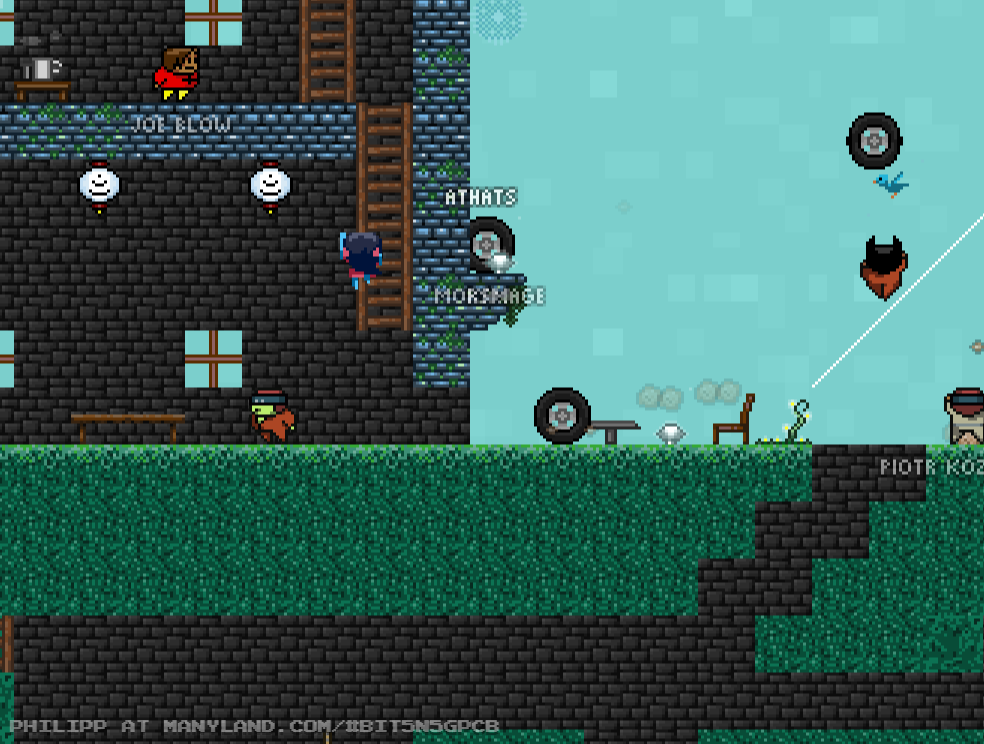
PT: What’s your advice to players who are new? The controls are intuitive, but other than that, “Manyland” seems very open. You just kind of move forward and learn at your own pace.
PL: That's true! We contemplated and drafted tutorial text bubbles, one's own player speaking advice when needed, or even a little manybird helpfully chirping about. But almost everything will decrease the immersion and take you out of the world for a second. Also, we don't want to define what the goal in this world is. We hope for everyone to define this freely for themselves or through interaction with others, as a predefined set of things to do would trivialize the world.
We hope that for now, players get curious to explore a bit on their own, and also that other helpful people will come along and meet and guide them! Naturally, this requires a lot of us to be online at the same time, and we hope many more will join in the future. The first early bird's testing month with a limited group of very helpful people had a bit of a loneliness problem, because the world was growing so big and people did not see each other always. We had needed the time for a lot of optimizations, though, and were finally able to fully launch this week.
PT: What's your favorite current feature in the game?
PL: One of the greatest features are things that people come up with that we didn't even think of. We try to keep it completely unthemed and open, so that there's no limits to your own creativity. Just being surprised by what people create and do is perhaps the best part of it!
PT: Do you have any other projects planned in the near future?
PL: There's usually a big list of concepts and ideas, but we're full time busy with “Manyland.” This world needs a lot of care now to help people do what they enjoy doing, to give them the tools they need (including tools for protection and managing the world). And there's a growing list of new features we would love to add to “Manyland” in the future, too. It's going to be an interesting journey :)
With developers who offer such an intense level of support and interest in their project, it’s impossible not to be impressed by what they’ve done with "Manyland" so far. If you’re creative or just like drawing and exploring, this game is definitely for you.
Official Site /r/indiegaming
